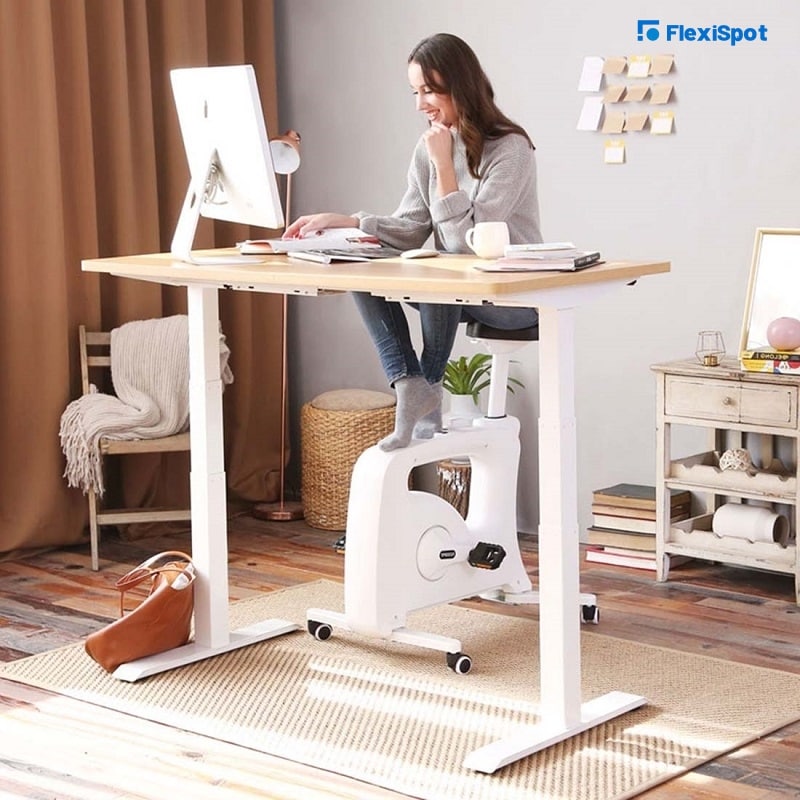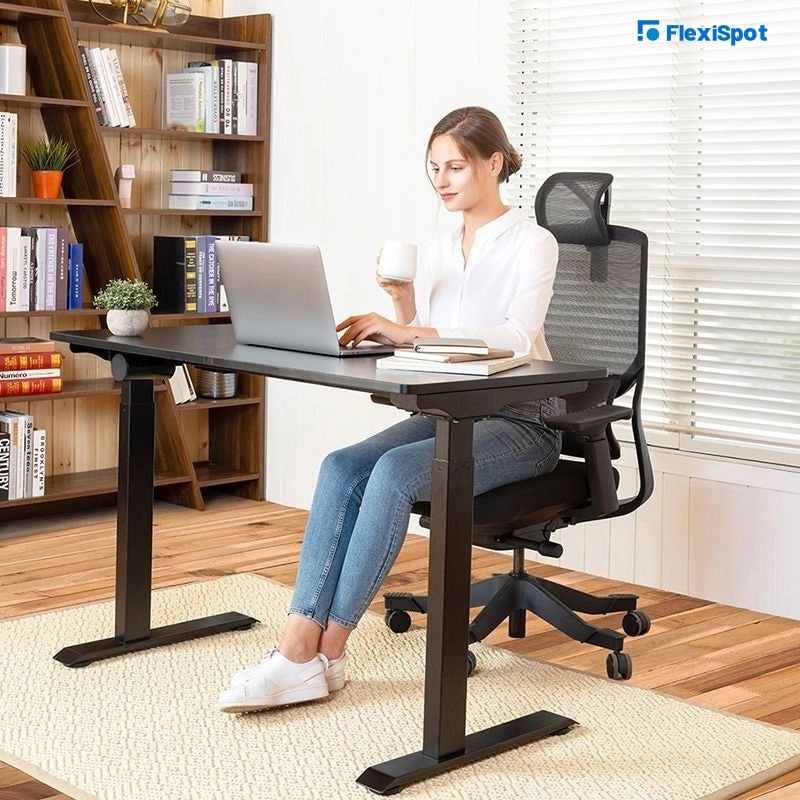Work-related stress is a real deal. The pressure to deliver the KPIs, meet deadlines, manage coworker relationships, tackle workplace bullying, and compete to meet the ever-increasing expectations of the employer are all more than enough to make you feel stressed at work. According to statistics, about 92% of Americans experience stress at work. Not everyone has the capacity to deal with work stress. Those who aren’t psychologically as strong often end up developing health conditions, which could be both physical and mental.
You may think that the nature of your job is the only reason you feel stressed and anxious all the time. While the nature of your job is to blame, it’s not the only thing that’s affecting your mental health. Your workplace conditions and poor ergonomics also play a critical role in worsening mental health.
You may not understand the relationship between ergonomics and mental health, but you'll be stunned when we tell you how closely they're linked. Although they aren't connected directly, ergonomics can really have a significant impact on your mental health.
This blog post is all about how workplace stress affects your mental health and how ergonomics can help you improve your mental and physical health.
How Can Work Environment Affect Mental Health
The workplace environment can really affect your mental well-being. It’s not just about the work-related stress or poor relationship with coworkers, but the level of comfort you’re provided at your workplace plays a major role here. While there’s little you can do to reduce work stress, there’s a lot that you can do to make your workplace more comfortable.
Before we can move on to how ergonomics can help mental health, let’s first have a look at how poor ergonomics affect your mental health.
Effect Efficiency and Productivity
You may not realize this, but your workplace design may be the reason why you aren't able to work at your optimum capacity. Sitting in the wrong posture all day long puts stress on your spine and can lead to pain in the lower back, shoulders, and neck. Poor posture is also a major reason why most people suffer from consistent headaches at work. When you're suffering from headaches and body pain, your work speed will automatically slow down. The work that you can complete in an hour will stretch over several hours, thereby affecting your efficiency and reputation big time. Knowing that you can do better than this but not being able to actually do that might make you self-critical, more stressed, and even depressed.
Poor Quality of Work
If you aren't comfortable at work, you might just want to get done with the day's work and leave. Let's say you've got to type several pages of a report, and your keyboard is placed at a very uncomfortable height. In this case, your shoulders and arms will hurt, and your muscles will feel fatigued. At this point, you’ll be so tired that your focus won’t be on doing the work right but delivering the work on time. You'll naturally be asked to make revisions, the pressure from the management will increase, and all of these factors might make you feel anxious. Anxiety is often the starting point for serious mental health problems, including panic and depression.
Increased Risk of Illness
Not working to correct your posture will only make the problems worst. The pain you feel in the body will become chronic, and you may get really sick. Your efficiency and productivity will go further downhill. You may even have to take frequent off days from work. Your inconsistency and unreliability might put your job in danger, and you know what follows the stress of such an extreme level – depression.
How Ergonomics Can Help
Now that you know what poor ergonomics could mean for your mental health, you may be more interested than ever to know how ergonomics can help change all of it. Till now, you may have only looked at one side of the coin, which shows the tremendous benefits of an ergonomic workplace for physical health but now that you know about the other side of the coin, let's get into details about how ergonomics can help improve your mental health.
Ergonomics involves providing the employees with a workplace that suits their needs and comfort. It means replacing standard office equipment with ergonomic equipment so that every employee is able to work in utmost comfort.
Let’s have a look at how improving workplace ergonomics effect the employees’ mental health:
1. Use Standing Desks to Reduce Body Fatigue
Standing desks are gaining a tremendous amount of traction for all the right reasons. These work desks are unlike the standard desks you’ve been using at work. They can be adjusted to suit your height. Standing desks are an excellent way to address the issues of poor mental health stemming from poor ergonomics. Sitting in the same posture all day long puts extensive stress on the spine, which can lead to pain in the lower back, shoulders, and neck. It can make you feel agitated and edgy, which eventually affects your productivity.
However, standing desks like Kana Bamboo Standing Desk help you overcome the consequences of sitting for extended durations. The muscles of your lower extremities will stay more active and less likely to get fatigued. You'll feel fresher and more active. You'll be able to work with more zeal and zest, which will reflect in your work. And that's how ergonomics will make you feel good about yourself. With higher self-esteem comes a higher level of confidence and with that, the risk of you falling into the hands of stress, anxiety, and depression will become fairly reduced.
2. Use Ergonomic Chairs to Reduce Stress on the Back
Another way ergonomics can help mental health issues is by reducing the stress on the spine. By bringing in ergonomic chairs, you can ensure the correct posture. An ergonomic chair offers support to your back and prevents lower back pain and pain in the shoulders and neck. Stress and pressure on the spine can also lead to headaches and migraine. Consistent headaches and migraine can impair your ability to work at full throttle and meet deadlines, thereby putting you under more stress. However, with an ergonomic chair, you’ll be able to work in comfort and deliver all the tasks assigned to you on time. This will help alleviate stress and improve your mental health.
3. Use Ergonomic Keyboards to Prevent Stress on Fingers and Wrists
Have you ever felt an indescribable discomfort in your hands, particularly in the wrists and fingers, after typing away on your keyboard all day long? If yes, it's a sign that you need an ergonomic keyboard. Using an ergonomic keyboard won't only alleviate the physical pain and discomfort but will also help you manage the anxiety and stress of close deadlines. Let's say there's a presentation you've to complete in a day, and after typing on your keyboard for straight 3 to 4 hours, your hands seem to have given way. What would happen? You’ll start to panic and most likely will fail to complete work on time. However, if you’ve got an ergonomic keyboard, you won’t feel the pain and discomfort even if you keep typing for several hours on a stretch. These keyboards feature a special design that offers the wrists adequate support and ensures that your hands are placed at a good distance from each other which puts minimal stress on your elbows. Having said that, you won't feel the stress you otherwise would, and that doesn't put you at the risk of developing a mental health problem like anxiety, panic, and depression.
People today are more aware of how ergonomics can affect their physical well-being. However, not many know that ergonomics can also affect mental health. When you're under stress, your pain tolerance is greatly reduced. If your workplace design doesn't ensure your comfort, you might feel irritated and anxious all the time without understanding why you're feeling so. All of these factors play together to affect your mental well-being. Physical stress leads to poor performance at work, which eventually exacerbates mental stress, and that's exactly what ergonomics prevent.
The next time you’re on the verge of losing it, take a deep breath, pull yourself together, and get down to making your workplace ergonomic. You’ll start to feel the difference from day 1.




